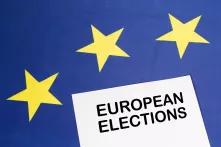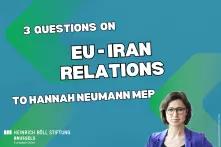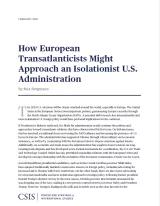EU nukes, EU army, EU Defence Commissioner – the debate on European security and defence is heating up. It feels like every week a new political proposal is made. So we asked three questions to Sara Nanni, Member of the German Bundestag and the Green parliamentary group’s spokesperson on defence policy, on how she views the latest developments.

What steps have to be taken to strengthen European security and defence?
The most important thing is to strengthen the European pillar of NATO. This is particularly the case with regards to the defence industrial base; it’s about the supply of weapons and ammunition. The European Union doesn’t play a major role when it comes to territorial defence, but it’s the key actor on industrial policy. So making sure that the EU industrial base, in the context of NATO, is producing enough weapons for national EU armies is crucial.
Ukraine needs more ammo, which means more investments in the defence industry. Yet, Greens have traditionally been against such investments. How do you view this?
I’m not sure we have been traditionally against this, but of course we have major concerns. The question isn’t if you should invest, but how you invest. We must break from past investment patterns that were guided by purely national perspectives and industrial interests. Future investments in the arms industry have to be European-oriented and based on actual capacity requirements rather than narrow national industrial interests.
Germany is currently blocking progress on the European Peace Facility, a crucial EU military support fund for arms deliveries to Ukraine. What is happening in Berlin?
We face a whole range of challenges and conflicts that need resolving. For this, we need more financial resources. But we govern in a three-party coalition in Germany. This means, even though we Greens would like to increase financial resources to solve these problems, this is not the shared view of the whole government. It is particularly the liberals, who are responsible for the finance ministry, that are blocking the European Peace Facility.
The views and opinions in this article do not necessarily reflect those of the Heinrich-Böll-Stiftung European Union.


